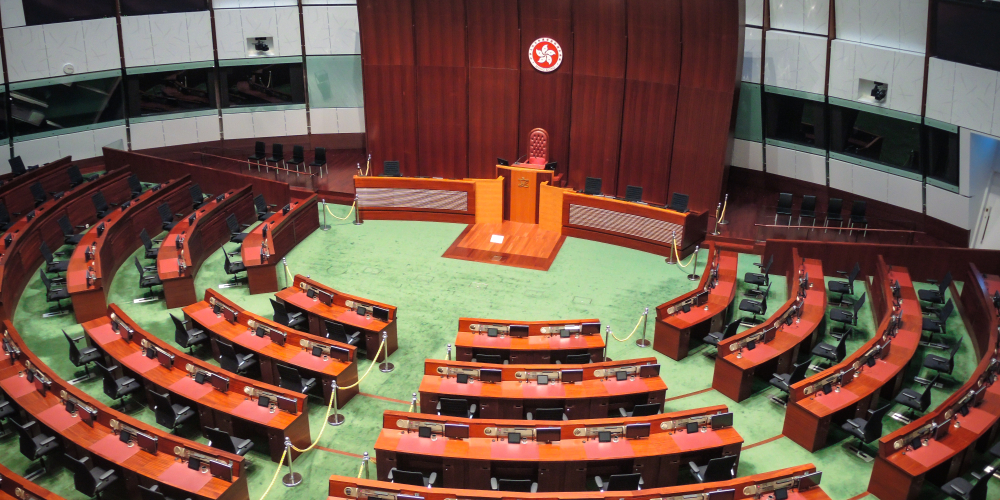At the People’s Action Party (PAP) Conference and Awards 2022 held at Resorts World Convention Centre on Sunday (6 Oct 2022), Deputy Prime Minister Lawrence Wong said that the Workers’ Party (WP) is now an established political force that holds two group representation constituencies (GRCs) and one single-member constituency (SMC).
Mr Wong noted that the WP contested six constituencies in the last election and that the sum of the votes it received across the six contests was slightly more than the votes for the PAP. “What if the WP had contested more seats? Would the PAP still have won 61 per cent of the votes nationwide? Would we still have returned to power?” he asked.
During the last GE, WP contested at:
- Hougang SMC – WP won 61.2%
- Punggol West SMC – WP lost 39.0%
- Sengkang GRC – WP won 52.1%
- Aljunied GRC – WP won 60.0%
- East Coast GRC – WP lost 46.6%
- Marine Parade GRC – WP lost 42.3%
There is no guarantee that PAP will win the next general election, Mr Wong said. Hence, PAP will work “doubly hard, triply hard” to regain the seats it has lost and will go all out to earn the support of Singaporeans to secure a strong mandate to govern, he added.
He called on party members to brace and strengthen themselves for tougher and more uncertain elections in future. “Every election from now on will be about which party forms the government,” he said.
Mr Wong called on party activists to continue meeting Singaporeans where they are, including online, and to have the conviction to stand up for PAP’s values and explain the party’s beliefs and policies. He asked them to step up efforts to address residents’ concerns, connect with them and consolidate support on the ground.
“We must have the courage to correct misperceptions and untruths, and tell people what this party and this Government have done, and what we will continue to do as long as we have their mandate,” said Mr Wong.
PAP: Foreign Talents Help Create Jobs For Singaporeans
However, when Singaporeans complain about foreigners taking away jobs from the locals, the PAP’s standard reply has always been that importing foreigners helps to create jobs for Singaporeans.
For example, about a month ago, Manpower Minister Tan See Leng wrote on his Facebook page trying to explain that the new Singapore’s One Pass is to bring in global talent who can create more opportunities for Singaporeans.
“More Singaporeans will have opportunities to work in leading firms, alongside experts from around the world, and progress in their careers,” he said.
But the reality on the ground is not that straightforward.
An FT article, “‘Singaporeans must benefit’: expats fleeing Hong Kong meet rising resentment“, reported in April this year noted that over the past decade, perceptions of international employers discriminating against the locals during hiring have increased.
It reported that Singaporeans are also “frustrated by the significant proportion of westerners that make up the city’s elite workforce”.
Fraser Howie, an independent analyst who lived in Singapore for several years, said, “We are talking finance, we are talking high-paying jobs . . . [Singaporeans] will say: hang on, these jobs are being brought here, so why aren’t they being offered to Singaporeans first?”
A former HSBC employee also told FT, “We go into the workplace and find we are a minority.”
Chia Ser Lin, another Singaporean, was more direct. He has a simple message for expats: go somewhere else.
Competition with foreigners for jobs forced Mr Chia to start his own business 5 years ago.
He told FT, “If companies want to set up their operation in Singapore to take advantage of the safety, the political environment, they have to hire Singaporeans.”
With more Singaporeans being edged out and replaced by foreigners, it will be hard for Mr Wong’s grassroots activists to explain to Singaporeans that PAP’s foreign talent policies really work.
Certainly, those replaced or retrenched because of job competitions from these so-called “talented” foreigners, will not think that they will have the opportunity to work “alongside experts from around the world, and progress in their careers”.
In any case, at the convention, Mr Wong promised, “I make this solemn commitment: I will give the full measure of my strength in service of my party, my people and my country.” Notice that he puts his party first before his people and country.
“We must show through our words and actions that the PAP is the only party with the ability and determination to take Singapore forward.”
Meanwhile, Mr Chia continues to believe that expats should go somewhere else.








